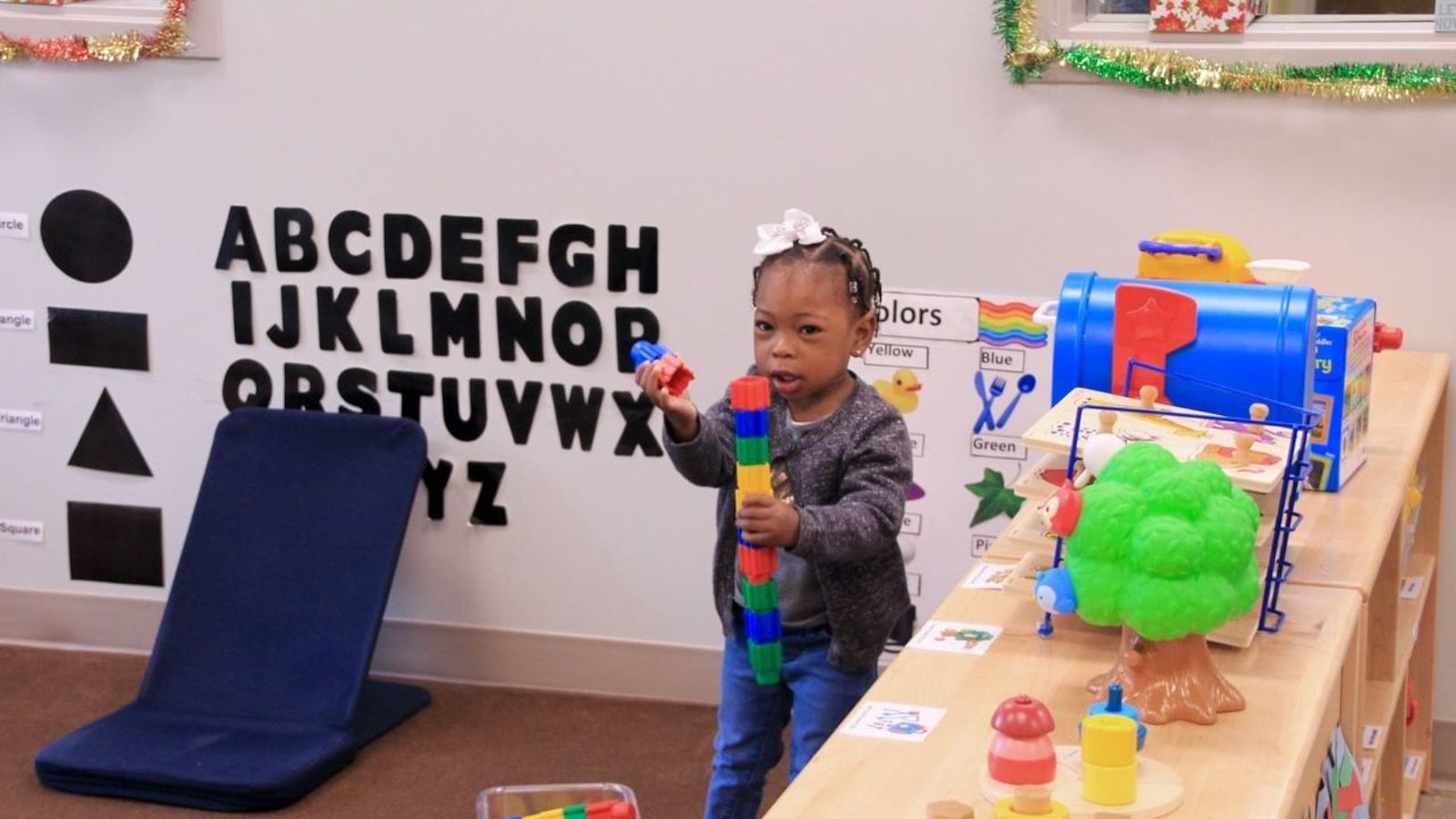The sales tax referendum approved last week by Memphis voters to fund pension and healthcare benefits for police and firefighters includes a less publicized beneficiary — prekindergarten.
Just how much money is likely to go toward early education efforts in the city is unknown.
“We have not had any discussions with anyone with the city or (police and fire) union representatives about how much money could be generated, but we’ve been watching closely,” said Haley Simmons, policy director for Seeding Success, which will help track academic progress in pre-K classrooms.
“Assuming there’s money left over [after covering police and fire benefits], it would go to the fiscal agent at the time to use based on the strategy approved by the city and county,” he said.
Pre-k provides the foundation for kindergarten, and studies show that children who participate in high-quality early education programs have better attendance, fewer behavior problems, and enter school more ready to learn than their peers.
Earlier this year, city and county officials voted to set aside $11 million to fund early education services in an effort to save thousands of prekindergarten seats that were in jeopardy when federal funding ended June 30.
The tax increase potentially provides an opportunity for more money for early education in the future, Simmons said. “In the next 5 to 10 years, our strategy was to elevate pre-K and now the pathway has been created for that.”
But city and county officials say they don’t expect much, if any, revenue from the tax increase to actually reach pre-K classrooms.
The referendum, approved by 52% of voters, authorizes a half percent increase in the local option sales tax, bringing it up to 2.75%. The new local rate of 2.75% — the maximum allowed under state law — plus the state sales tax of 7% combines for a total sales tax rate of 9.75% in Memphis.
Proceeds from the tax increase is supposed to pay for pension benefits and healthcare insurance for retired first responders that were cut in 2014 and 2016. Excess revenue would go toward street maintenance and prekindergarten education.
The tax hike is estimated to raise $50 million to $54 million annually. Fire and police union officials have estimated that restoring benefits to 2014 levels would cost about $34 million a year, leaving about $16 million to $20 million for pre-K and road repair.
Any funding for pre-K would go to First 8, the new nonprofit that city and county governments have contracted with to be the fiscal agent and coordinator of early education efforts in Shelby County.
Memphis City Council chairman Kemp Conrad, who opposed the referendum, predicted that with rising healthcare costs, the half-cent increase won’t be enough to fully fund lost benefits for first responders, and will put the city back in the financial straits it was in when the cuts were made.
“There’s a reason we maintained these difficult changes. It’s not enough money and it won’t be enough money,” Conrad told Chalkbeat. “Sales tax revenue grows slowly and is very susceptible to changes in the economy.”
He warned the funding shortfall might even result in a property tax increase down the road. And as for funding for early education, Conrad said, “We’ve already got fully funded needs-based pre-K.”
Shelby County Commissioner Edmund Ford Jr. opposed the referendum for similar reasons as Conrad. He questions whether a government can give benefits to one group of employees, like police and fire, and not others. Six years ago, he said the state comptroller told city council members that they couldn’t.
The pre-K funding marked the first foray back into education by the city of Memphis since it stopped funding education after the 2013 merger of the city and county school districts.
Conrad said that the promise of money for early education was only added to the referendum to woo voters “because that polls well.” Police union officials have said that pre-K is a long-term solution to reducing crime.
While there’s no way to tell whether including prekindergarten in this year’s referendum affected voting, public support for pre-K hasn’t always been a certainty. In 2013, voters overwhelmingly rejected a half-cent sales tax referendum for pre-K.
Mayor Jim Strickland, who co-sponsored the 2013 pre-K referendum as a council member, did not answer specific questions concerning this year’s referendum and funding for pre-K. His office issued a statement instead: “We are currently working on implementing the will of the voters. There are several moving parts that we are working through, but we hope to have a definitive plan soon.”

